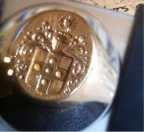Sustainable Land Lab Winners Announced
Here is the press release announcing the winners of the Sustainable Land Lab Competition, put out by Washington U. The team I co-lead with Don Koster (The Sunflower+ Project StL) is among the winners! Two other teams also supported by Missouri Botanical Garden Staff are also among the winners.
We look forward to executing our project in May and June and working the land for a few years. We have a great team - more about them later and when we get our project web site up and running. In the meantime check out the many cool ideas that will move the sustainability discussion forward.
Land Lab winners advancing sustainability in St. Louis
April 11, 2013
By Neil Schoenherr
The City of St. Louis is poised to lead the way in innovative solutions to the national urban issue of vacant land, thanks to a unique partnership between the city and Washington University.
Four of the City’s vacant lots will be the new home for five demonstration projects that test new ways to think of vacant space. From a franchise-model urban farm co-existing next to an intimate bistro built out of re-used shipping containers, to a sunflower lab piloting efficiency of plant-based soil remediation, Old North St. Louis will be the first home to what will truly be a Sustainable Land Lab.
Winners of the inaugural Sustainable Land Lab Competition are:
•Bistro Box and Our Farm: The Bistro Box concept is a small business incubator that transforms surplus cargo containers into a compact restaurant and culinary destination. Our Farm is a scalable urban agriculture network that proposes to transform blighted lots into cost efficient models of sustainability. **This is a hybrid of two finalist teams sharing a single lot due to the synergy between the two projects**
•Chess Pocket Park: An outdoor community chess venue for residents with a permanent location supporting our primary community asset – people.
•Mighty Mississippians: A modern agricultural and sustainable living model, the premises for this approach are rooted in regional history, the Mississippians and their ancestors, as well as modern permaculture practices. Using concepts of permaculture, the site will demonstrate the interdependent relationships that work efficiently and sustainably in nature and that worked for previous civilizations, from the soil to the birds, to humans.
•Sunflower+ Project: Proposes turning previously developed urban lots into a community asset through the planting of sunflowers. With a goal of eventually spurring redevelopment of these vacant parcels, the project will serve as an appropriate, scalable and productive transitional solution.The sunflowers will improve soil quality, remove soil contaminants, and eventually produce a marketable set of products from flowers to seeds to biodiesel.
Each winning project will receive a two-year land lease and $5,000 seed money to start their project.
In the inaugural year of this city-wide competition, the pilot sites will be hosted in Old North St. Louis.
“The Sustainable Land Lab Competition is exploring innovative ideas for a national issue,” says Phil Valko, director of sustainability at the university.
“From urban to suburban to rural communities, vacant land is an American epidemic. This competition is adding to the dialogue and the body of problem solving,” he says. “The aspect that makes it especially unique is that the winners will actually win land and money to build their idea. The partnership between the city and Washington University in St. Louis is of great benefit to both. It leverages the university’s role as a thought-leader and research institution to channel creative thinking to a major challenge the city faces.”
The competition timing aligns well with the release of the first City of St. Louis Sustainability Plan.
“Advancing tangible and measurable sustainability has been an important goal of this project,” says Catherine Werner, sustainability director for the City of St. Louis. “Part of the challenge was for the teams to specifically address how their projects will help achieve the city’s sustainability goals. It’s very exciting to now have the opportunity to watch as creative sustainability ideas become reality.”
“I am thrilled that we have been able to partner with Washington University on this project,” St. Louis Mayor Francis Slay says. “There was an overwhelming amount of interest and support from the community and the result was a high level of energy and an impressive array of final project ideas. It was difficult to select just a few winning projects. I look forward to celebrating the winning projects and using ideas from all the projects involved to address vacant land use in the city.”
The winning teams will present their ideas during a public forum at 6:30 p.m. tonight at Bridge, 1004 Locust St. in St. Louis.
Forty-eight teams applied in the first of a three-round competition. The final round consisted of eight ideas representing 10 of the original teams.
All of the submissions can be found online at sustainablecities.wustl.edu/
The competition brief, which outlines the goals and context for this initiative, can be found online at sustainablecities.wustl.edu/
The Sustainable Land Lab is a partnership between Washington University and the City of St. Louis, with support from Old North St. Louis Restoration Group, Equifax and the Regional Housing and Community Development Alliance.
It is the ongoing legacy of Washington University’s three-day Sustainable Cities Conference, held Nov. 1-3, 2012.The Sustainable Land Lab is designed to be a living laboratory of two-year demonstration projects, which will showcase innovative ideas and integrated strategies for transforming one of the region’s greatest challenges — vacant land — into an asset that can advance sustainability.



<< Home